All Formats & Editions

The Wealth of Nations (Bantam Classics)
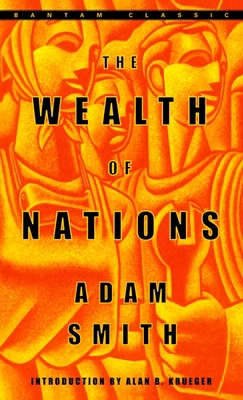
The Wealth of Nations
The Wealth of Nations by Adam Smith It is symbolic that Adam Smith's masterpiece of economic analysis, The Wealth of Nations , was first published in 1776, the same year as the Declaration of Independence. In his book, Smith fervently extolled the simple yet enlightened notion...

The Wealth of Nations
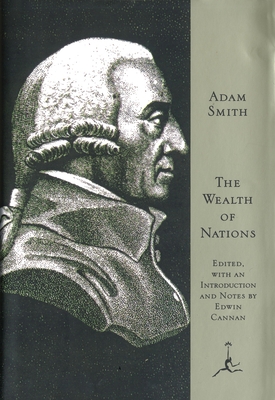
The Wealth of Nations
First published in 1776, The Wealth of Nations is generally regarded as the foundation of contemporary economic thought. Adam Smith, a Scottish professor of moral philosophy, expounded the then-revolutionary doctrine of economic liberalism. The book's importance was immediately...

The Wealth of Nations: Books 1-3 (Penguin Class...

The Wealth of Nations

The Wealth of Nations: Books I-III
The classic economic treatise that insipired Thomas Piketty's Capital in the Twenty-First Century The publication of The Wealth of Nations in 1776 coincided with America's Declaration of Independence, and with this landmark treatise on political...

The Wealth of Nations
The annual labour of every nation is the fund which originally supplies it with all the necessaries and conveniencies of life which it annually consumes, and which consist always either in the immediate produce of that labour, or in what is purchased with that produce from other...
![Wealth of Nations [Selections] 1614278814 Book Cover](https://m.media-amazon.com/images/I/412MEByfrEL._SL500_.jpg)
Wealth of Nations [Selections]
![La riqueza de las naciones (Ampliada) [Spanish] B08BR7TNDQ Book Cover](https://i.thriftbooks.com/api/imagehandler/l/9CCABA76C287B69E31F3B809D8005D250D41C707.jpeg)
La riqueza de las naciones (Ampliada) [Spanish]
Edici n en tapa blanda, revisada, indexada y ampliada con anexos con biograf a de Adam Smith y los precedentes hist ricos del pensamiento econ mico. En 1776, Smith public su obra Una investigaci n sobre la naturaleza y causas de la riqueza de las naciones (o simplemente...

Wealth of Nations

The Wealth of Nations - Classic Illustrated Edi...
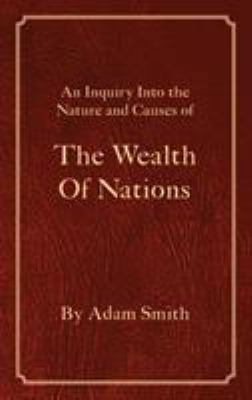
The Wealth Of Nations
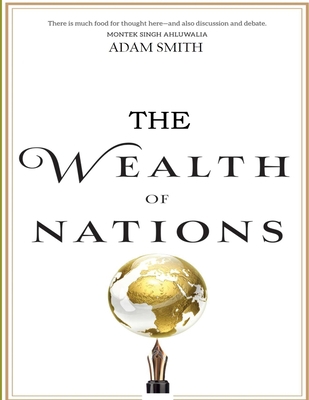
The Wealth of Nations: (Classic Edition)
Smith's seminal work, The Wealth of Nations, aims to create a new understanding of economics. Smith writes largely against the mercantile system that existed at the time of writing, but, along the way, gives a complicated but brilliant account of an economic system based in human...

The Wealth of Nations: Books 1-5
The Wealth of Nations is a clearly written account of economics at the dawn of the Industrial Revolution. The work was a landmark work in the history and economics as it was comprehensive and an accurate characterization of the economic mechanisms at work in modern economics...
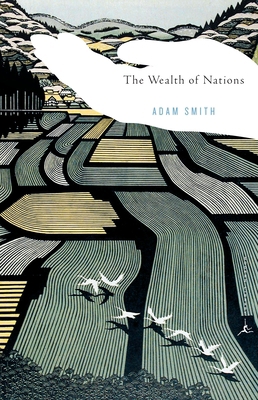
The Wealth of Nations

The Wealth Of Nations : Books 1-3 : Complete An...
An Inquiry into the Nature and Causes of the Wealth of Nations is the magnum opus of the Scottish economist Adam Smith. It is a clearly written account of economics at the dawn of the Industrial Revolution, as well as a rhetorical piece written for the generally educated individual...
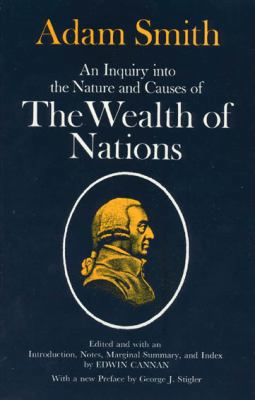
An Inquiry Into the Nature and Causes of the We...
Adam Smith's The Wealth of Nations was recognized as a landmark of human thought upon its publication in 1776. As the first scientific argument for the principles of political economy, it is the point of departure for all subsequent economic thought. Smith's theories of capital...

The Wealth of Nations (Modern Library Classics)

The Wealth of Nations

An Inquiry into the Nature and Causes of the We...
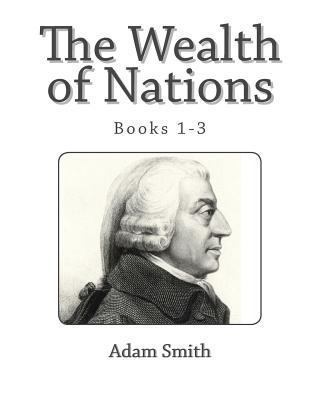
The Wealth of Nations (Books 1-3)
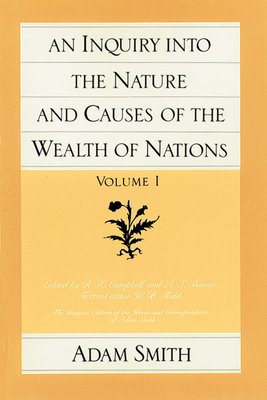
An Inquiry Into the Nature and Causes of the We...
First published in 1776, the year in which the American Revolution officially began, Smith's Wealth of Nations sparked a revolution of its own. In it Smith analyzes the major elements of political economy, from market pricing and the division of labor to monetary,...
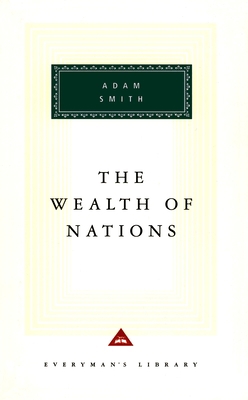
The Wealth of Nations: Introduction by D. D. Ra...




